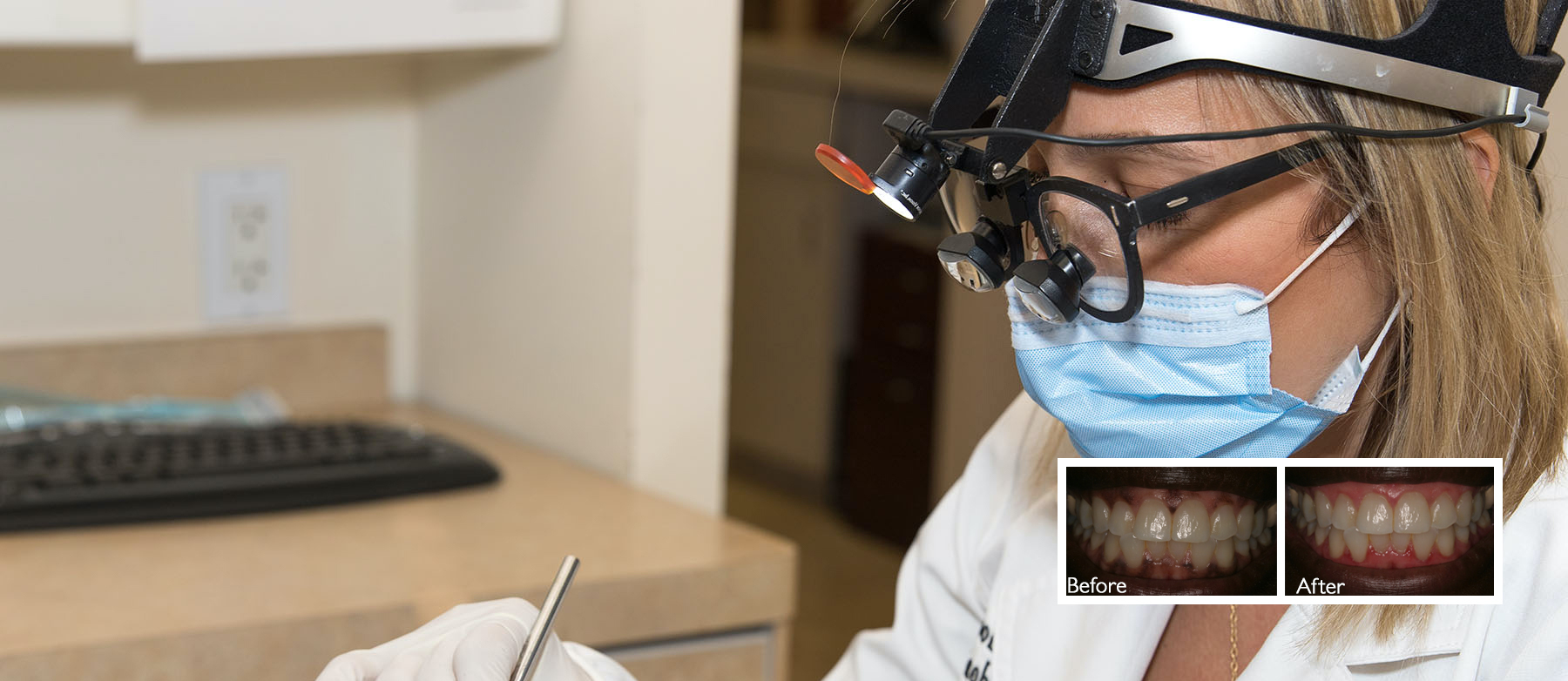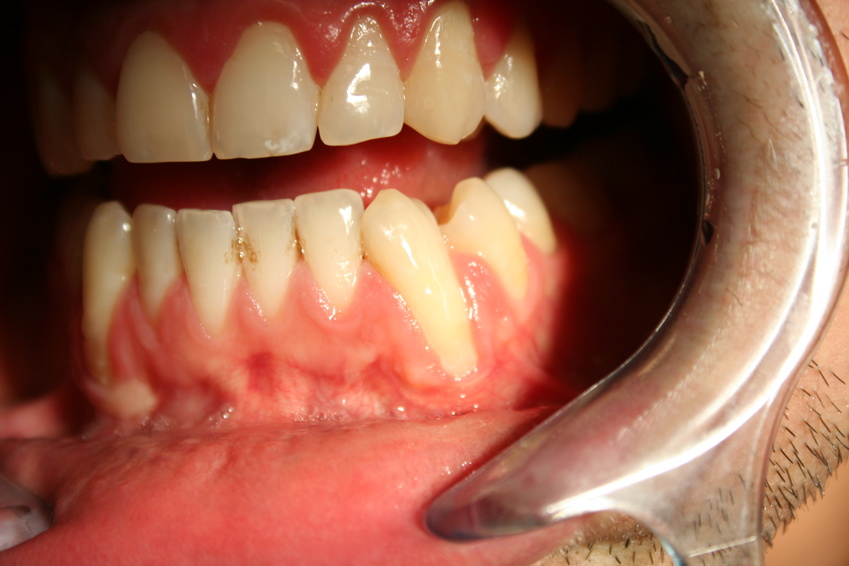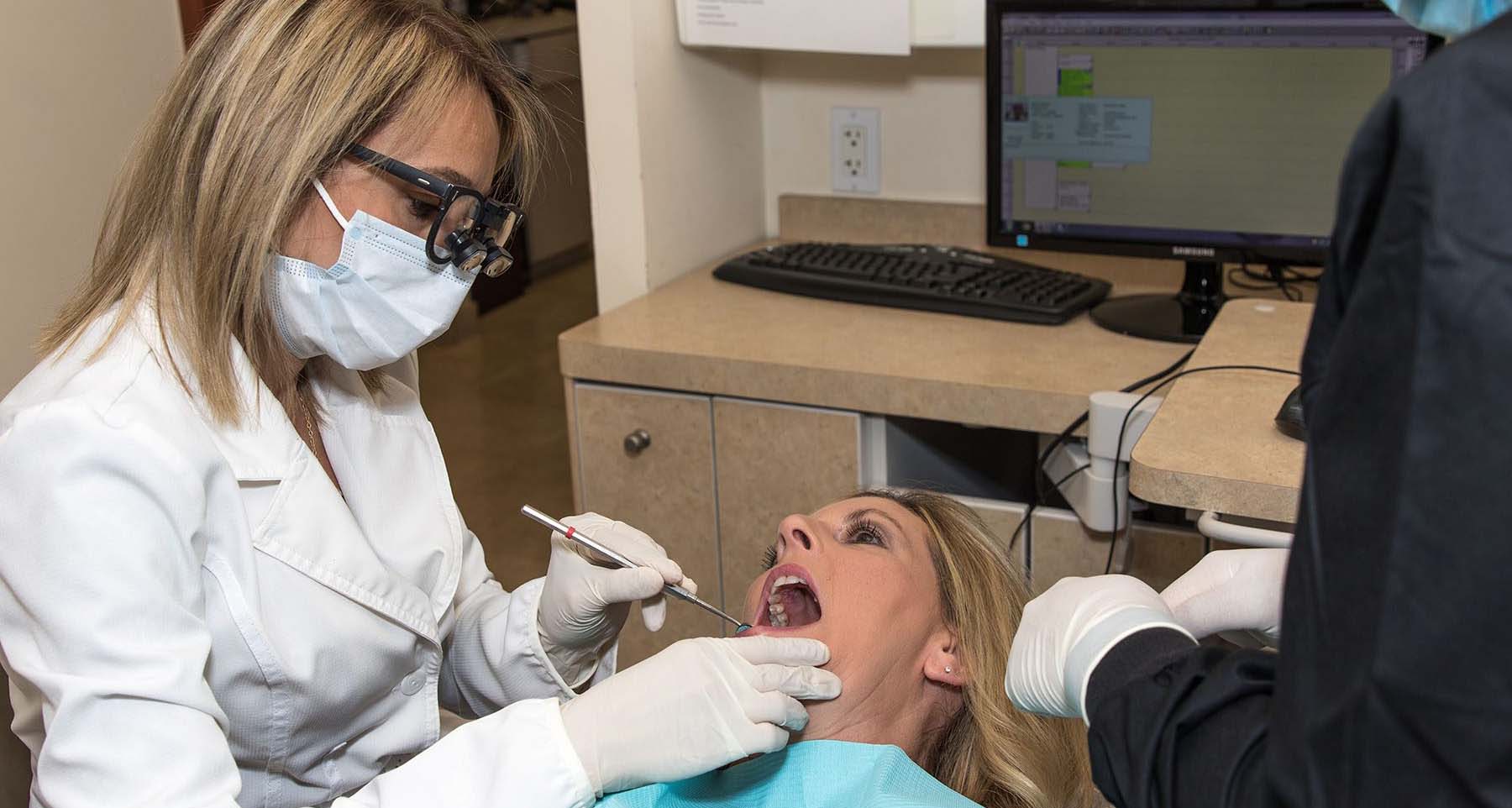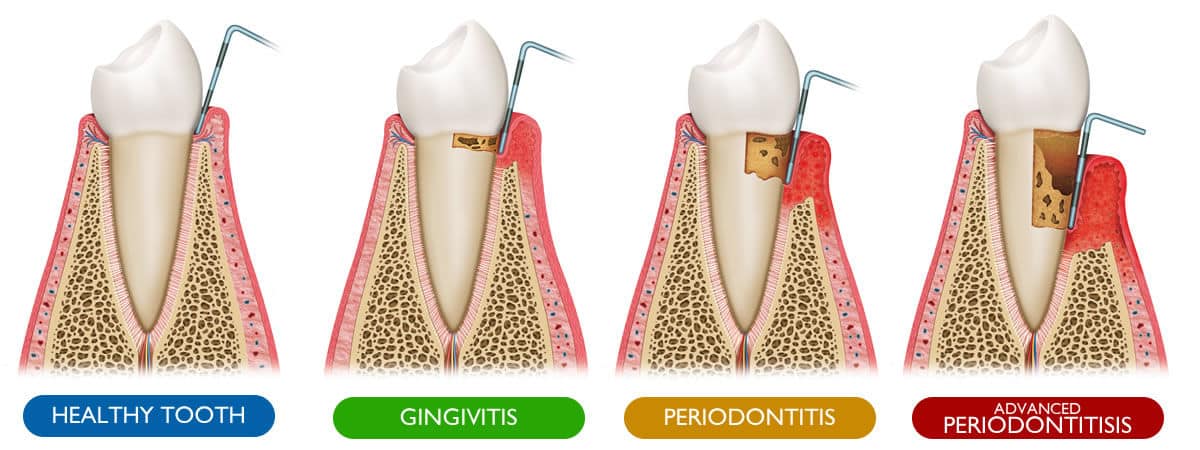A loose tooth in childhood is okay. It is a rite of passage. But in adulthood, it is a cause for alarm. The problem of loose teeth among adults in Los Angeles is common. For most, the problem is minor, but there are a few cases that are quite severe. When your teeth feel loose, you ought to visit a dentist immediately. There are many dentists in Los Angeles. But, Dr. Delaram Hanookai takes the highest scorecard when it comes to treatment1 of wiggly teeth, among other dental problems.
The causes of loose teeth are many and diverse. A good dentist, such as Dr. Delaram Hanookai, will diagnose your problem and find a suitable treatment plan. We know just how to save a loose tooth from falling out. In this article, we shall discuss the causes of wiggly teeth and explore the available treatment options.
Causes of Loose Teeth
The following are the factors that may cause teeth to loosen during adulthood:
Injury of the Teeth
Trauma in the mouth can cause damage to the ligaments and connective tissue around the teeth. Sportspeople are prone to teeth injury during their sporting activities. Automobile accidents also cause injuries to teeth among many people. So, if you have experienced trauma around your mouth and there is a wiggly tooth, seek medical help immediately.
Gum Disease
Another reason why teeth can loosen in adulthood is gum disease. The disease, also referred to as periodontitis, is caused by poor dental hygiene. It starts with the buildup of plaque, a condition known as gingivitis. If left untreated by a specialist, gingivitis can advance to gum disease. It is characterized by infection and inflammation around the gum, which eventually causes the teeth to become loose.
Pregnancy
Teeth may be affected by high levels of progesterone and estrogen during pregnancy. This problem is typical among pregnant women, and luckily it is temporary. Although these problems will often resolve after pregnancy, you should get concerned when your teeth feel loose. The issue needs to be addressed early enough before it advances to periodontitis. This disease can become a threat to your pregnancy if left untreated.
Osteoporosis
Generally, osteoporosis leads to loss of bone density. Subsequently, the bones weaken. Teeth are supported by the jaw, which is made of bone. As such, the jaw may become porous due to osteoporosis. This may lead to loose teeth since they lack adequate support from the jaw. Besides that, certain drugs that treat osteoporosis can cause your teeth to loosen. This condition is called osteonecrosis.
Grinding of Teeth
Also known as bruxism, teeth grinding is another leading cause of loose teeth among adults. It occurs when jaws involuntarily rub against each other during sleep. The rocking force and pressure exerted on the teeth can cause them to become loose over time. A misaligned bite is the leading cause of bruxism. Other causes include tiredness and alcohol consumption.
Dental abscess
A dental abscess occurs when the pulp dies and begins to rot inside the tooth. Usually, it starts with tooth sensitivity and pain. These symptoms may be an indication that the pulp in the tooth’s interior is dead. If you fail to seek immediate treatment, an infection can ensue around the tooth. What follows is a wiggly tooth since the condition tends to impair the bone and supporting ligament around the tooth. When you consult Dr. Delaram Hanookai, the abscess will be drained off to avoid infection.
Misalignment of Teeth
It is also called malocclusion. This is a congenital condition whereby the teeth are not correctly aligned. In most cases, misalignment of teeth will result in the exertion of pressure on one or more teeth. If not corrected, you will notice a loose tooth down the line.
How to Prevent Loose Teeth in Adults
Some of the things that cause teeth to loosen are beyond human control. They include misalignment of jaws and accidents. But, most of them can be prevented. According to the dental expert, Dr. Delaram Hanookai, you can protect your teeth from becoming loose by addressing the underlying problems early. For instance, you need to seek treatment for your gum disease before it causes further damage.
To avert the risk of getting a wiggly tooth, you need to know your dental framework well. This will enable you to notice an abnormality as soon as it appears. Personal hygiene also plays a vital role in preventing the loosening of teeth.
There is no one perfect way of keeping your teeth in good shape. Achieving this requires pulling together several preventative measures. Here are several crucial tips to help keep your teeth solidly cemented on the jaw:
- Maintain proper oral hygiene by using fluoride toothpaste to brush your teeth at least twice a day
- Floss teeth at least once a day
- Drink adequate water every day and eat a balanced diet with all the essential minerals and vitamins
- Get treatment for underlying conditions that would jeopardize your oral health. These diseases include osteoporosis and diabetes
- Get treated for gum disease as soon as possible. This is to avert the disease from causing loose teeth
- Wear a custom-made bite splint at night to prevent your teeth from grinding against one another during sleep
- Use a custom-fitted mouth guard during sporting activities to protect your teeth from trauma
- Visit Dr. Delaram Hanookai for regular checkups and to get treated for any dental issues that could be emerging
- Avoid smoking
- Get braces if your teeth are misaligned
- Be cautious about drugs that may damage your teeth
Treatment Options for Loose Teeth in Adults
There are numerous ways to treat a loose tooth or teeth. Your treatment plan will depend on what is causing the loose tooth. So, the first step in treating this dental problem is making a proper diagnosis. To achieve this goal, you must talk intensively with your dentist. When you visit us, Dr. Delaram Hanookai will have a one-on-one session with you to find the root cause of the problem. After diagnosis, the next step is to find a suitable plan to treat your wiggly tooth. Here, several options may be considered, including the following.
Medications and Mouthwash
If your problem involves bacterial infection, it can be treated using an antibacterial and antiseptic mouthwash. This method is mainly used if what is causing the loose tooth is gum disease. It will eliminate harmful bacteria from your mouth.
Deep Cleaning
Deep cleaning of the teeth is vital if the underlying problem is gum disease. The procedure is also known as scaling. It involves the removal of plaque deposits that build-up on the tooth surface. Typically, the plaque carries bacteria that are responsible for wearing out the tooth. So, by removing the plaque, you will eliminate bacteria and avert the progression of periodontitis.
Dental Appliances
Dental appliances may be used both in preventing and treating wiggly teeth. In prevention, well-fitting mouth guards are used during sports to protect the teeth from injury. When it comes to treatment, bite splints are prescribed for adults with grinding problems. In case a loose tooth detaches altogether, there are several options to make sure you don’t lose your smile. They include the use of dental implants and dental bridges. Dental implants are incredibly helpful in replacing missing teeth.
Surgery
Surgery is the ultimate solution when other options, such as medication and dental appliances, are not viable. There are different surgical procedures done to rectify the problem of loosening teeth. One of them is bone grafting. In this surgery, a bone graft is removed from a healthy part of the body and deposited on a porous jaw. Similarly, soft tissue grafting may be done on pieces of the gum that are missing. The two procedures will enable your teeth to have better support by reinforcing the jaw and the gum.
Adjustment of Bite
A misaligned bite can be adjusted by debriding or removing small parts of tooth enamel. By doing this, the pressure on the loose tooth will be eliminated. Also, the wiggly tooth will have adequate space to attach to the jaw more strongly.
Splinting
In this procedure, a piece of metal, called a splint, is used to bind the enamel of the loose tooth and the adjacent healthy tooth. The aim here is to give the loose tooth support. Since the tooth’s movement is restricted, it is likely to heal faster and attach back to the jaw.
The Ultimate Solution
When all is said and done perfectly, all you want is a healthy smile. The most effective technique to achieve this goal is by having a reliable dentist on your side. A professional such as Dr. Delaram Hanookai knows just how to save a loose tooth from falling out. If your teeth feel loose or you are suffering from gum disease, we have everything you need to resolve your problem. We are experts in dental implants, among other dental procedures. Call us today and book an appointment with our competent and professional team of dentists in Los Angeles.
Loose Teeth Treatment Los Angeles
Loose teeth in adults require prompt and specialized care. Southland Dental Care, located in the heart of Los Angeles, has emerged as a trusted name for offering comprehensive loose teeth treatment. Here’s what makes Southland Dental Care an ideal choice for those seeking exceptional dental care:
Experienced Dental Professionals
Led by a team of highly skilled and seasoned dental professionals, Southland Dental Care is renowned for providing individualized care to patients. Their expertise in handling complex dental issues, including loose teeth, ensures that patients receive the most appropriate and effective treatment.
State-of-the-Art Technology
Southland Dental Care is equipped with cutting-edge dental technology, such as digital X-rays and laser therapy. This advanced technology enables precise diagnosis and minimally invasive treatments, contributing to quicker recovery and optimal results.
Comprehensive Treatment Options
Southland Dental Care offers a wide range of treatment options for loose teeth, from non-surgical procedures like scaling and root planing to surgical interventions like bone grafting. The clinic’s ability to provide an array of services under one roof adds convenience and ensures continuity of care.
Customized Care Plans
Understanding that each patient’s needs are unique, Southland Dental Care provides customized treatment plans. Whether it’s an injury-induced loose tooth or a case complicated by underlying health conditions, their specialists collaborate to devise a plan tailored specifically to the patient’s situation.
Focus on Patient Comfort
Patient comfort and satisfaction are paramount at Southland Dental Care. Their modern facility is designed to create a soothing environment, and the staff goes above and beyond to ensure a pleasant experience, from the initial consultation to follow-up care.
Emergency Dental Services
Recognizing that dental emergencies can occur at any time, Southland Dental Care offers prompt emergency services. Their readiness to handle urgent dental issues reflects their commitment to patient welfare.
Convenient Location and Accessibility
Conveniently located in Los Angeles, Southland Dental Care is easily accessible to residents and visitors alike. Their flexible appointment scheduling and efficient services make dental care hassle-free.
Commitment to Preventive Care
Southland Dental Care believes in proactive dental health. They emphasize regular check-ups, cleanings, and patient education to prevent future dental problems, including loose teeth. This preventive approach reflects their dedication to holistic dental well-being.
Why Southland Dental Care
Southland Dental Care is not just a dental clinic; it’s a commitment to excellence in dental care. Their blend of technological advancement, professional expertise, and compassionate care positions them as a go-to destination for loose teeth treatment in Los Angeles.
If you are concerned about a loose tooth or other dental issues, Southland Dental Care is ready to assist. Their comprehensive approach ensures that your smile stays healthy and beautiful. Reach out to them today to schedule an appointment with their esteemed team of dental specialists.









